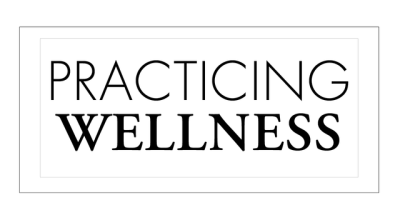
When Disney released a sequel to the movie “Frozen” — creatively titled “Frozen II” — in 2019, I was one of the millions of people worldwide who enjoyed watching it. Not so much that I planned to watch it again, but as the Yiddish proverb goes, “We plan, God laughs.”
In 2022, my wife and I welcomed a daughter into the world and, in 2023, she discovered “Frozen.” As I’m sure many dads with daughters can attest, it’s really hard to tell your baby girl “no.” That said, I am also a staunch advocate of boundaries and limit-setting, so naturally, when she wants to watch “Frozen II,” we watch “Frozen II.” Lately, that’s been pretty often, and through these repeated viewings, I finally found a scene that I can dubiously shoehorn into an article about mental health and wellness.
Immediately before the final musical number begins, we watch the protagonist, Anna, get trapped in a cave, then experience ambiguous supernatural phenomena which she interprets to mean her sister, Elsa, has died. Wet, cold, and alone, she chooses not to ruminate on her suffering, instead breaking into song (this is Disney after all.) It’s not an earworm in the same fashion as “Let It Go” from the first movie, but “The Next Right Thing” does contain an important message. With lyrics seemingly lifted straight from the Alcoholics Anonymous Big Book, Anna takes the idea of “one step at a time” quite literally as she makes her way out of the cave. The task awaiting her outside the cave is monumental, but she sings:
I won’t look too far ahead
It’s too much for me to take
But break it down to this next breath
This next step
This next choice is one that I can make.
Not surprisingly, this sentiment extends into American culture far beyond Disney. Songs like “One Step at a Time” and aphorisms like “Rome wasn’t built in a day” evoke themes of large goals being broken down into smaller and more manageable ones. Research demonstrating the efficacy of subgoaling has been around for more than 50 years, though psychologist Carl Jung intuited it long before that, in 1933.1 The idea would go on to make its way to the ears of Bill Wilson, a.k.a. Bill W., one of two founders of Alcoholics Anonymous.2 “One day at a time” is more than an aphorism; it’s a way of thinking that is useful to more than just those in recovery.3
As a licensed therapist, when a client uses words like “frozen,” “stuck,” “lost,” or anything similar, my mind goes to a few places. Anxiety might be the culprit, or perhaps grief or depression or even trauma. That isn’t an exhaustive list by any means, but, sadly, they are the most common reasons for impairment of that type. They also require the attention of a mental health professional. Still, there are actions to take that can act as emotional first aid during periods of high distress. These are steps to take in conjunction with — and not in lieu of — seeking outside help:
Calendar everything. Don’t set aside a large chunk of time and label it “write brief.” Break it down into smaller units until each piece feels manageable to you.
Set a boundary during your workday. Most discussions surrounding healthy boundaries involve banal tips like not checking your email after a certain hour. Yet, how often during the workday is your flow disturbed by something trivial? For those who struggle with inaction, these trivial interruptions can feel like a train leaving the tracks and are especially devastating when it takes an immense effort just to get the train moving.
Stick to a routine as much as possible. Tasks that become familiar require less of our cognitive processing power — most people understand that intuitively.4 But the inverse is also true in that unfamiliarity fosters higher levels of uncertainty, which depletes cognitive resources.5 If your body is using significant resources to emotionally regulate itself before the work even begins, then, naturally, there are fewer resources to devote to the work itself.6
Acknowledge your distress and think dialectically. Anna sings You are lost / Hope is gone / But you must go on / And do the next right thing. It’s important for us to remember that “hope is lost” and “I can go on” are not mutually exclusive.
Show yourself some compassion. Feeling overwhelmed is uncomfortable, a remnant of our ancestors’ survival mechanisms. Of course, they had the luxury of all three responses (fight, flight, and freeze) whereas fighting and running away are generally frowned upon in the modern American work culture (unless, of course, you’re a member of Congress.) Admonishing yourself for feeling overwhelmed compounds the problem.
If, during the course of reading, you’ve found yourself thinking about how overwhelmed you are, there are a couple actionable steps you can take today. First, call the State Bar of Michigan Lawyers and Judges Assistance Program and let us connect you with a licensed mental health professional. If you’d like to hear from other lawyers about how they tackle feelings of anxiety, depression, and stress, I invite you to check out the LJAP virtual support group, facilitated by yours truly, and hosted via Zoom on Wednesday evenings from 6-7 p.m. The group is completely confidential, and it’s a great way to hear from other professionals who have experienced similar problems. Call (800) 996-5522 or email contactLJAP@michbar.org for more information.